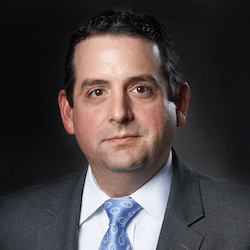Top Guidelines Of Hanlon Law
Table of ContentsHanlon Law - An OverviewThe Only Guide for Hanlon LawThe 10-Minute Rule for Hanlon LawSome Known Factual Statements About Hanlon Law
When an offender goes on trial for supposedly dedicating a crime, a district attorney has to develop that the offender is guilty of the criminal offense past a reasonable question. At the same time, the criminal offender is qualified to provide a defense and may do so through a range of methods. The accused may try to poke openings in the district attorney's instance, argue that an additional individual devoted the criminal offense, or suggest that he or she did dedicate the criminal activity yet had a lawful and also practical protection for doing so.
In some states, the defense of craziness will permit a defendant to avoid prison however will call for that the offender be held in a psychological center for therapy. The defense of intoxication Depends on the concept that the offender can not fulfill all of the components of the crime because he or she did not comprehend what he or she was doing (criminal defense).

Hanlon Law - Truths
Error of law applies when a criminal offender believed his or her actions were legal. This protection uses in just extremely restricted scenarios. Self-defense (or defense of another) Discomfort Need One more group of defenses uses when the defendant dedicated the crime but argues that he or she was warranted in doing so.
An accused might argue, for instance, that he did shoot a trespasser however did so in protection since the trespasser was endangering him with a blade. Under a protection of pressure, the criminal offender argues that he or she only devoted the criminal activity due to the fact that she or he was forced to do so by another person.
Under a need protection, the criminal offender may argue that he or she committed the criminal activity in order to prevent a more significant harm. The offender may contend that it was needed for him to steal an automobile in order to go after down one more person that was intimidating to utilize an explosive gadget.
Initially, the accused may say that no criminal offense occurred as a result of the protection of permission. The offender might suggest that although sex-related intercourse occurred, it was not rape because there was authorization. Also, he may suggest that there was no assault because the target consented to the harm.
The 7-Minute Rule for Hanlon Law
Third, the offender may suggest entrapment. Entrapment occurs when the government generates an individual to dedicate the criminal offense and also then tries to penalize the individual for it. The offender may suggest that no criminal activity would have happened but also for the federal government's inducement, and she or he need to for that reason not be held responsible.
To effectively convict a criminal accused, the government should verify the defendant was guilty beyond a sensible uncertainty. One of the most typical defenses criminal defendants might raise can be grouped right into 2 general categories initially, rejecting the offender did anything (consisting of the alibi protection), and also second, acknowledging the offender did the act but only under mitigating conditions (consisting of self-defense, craziness, entrapment, as well as intoxication defenses).
If a defendant is accused of devoting a burglary but can confirm that he was at the dental practitioner or conference with a repairman throughout the time of the criminal activity, he might be effective in his alibi defense. Protection was the essential question raised in the current George Zimmerman instance. https://0rz.tw/gjAop.
The insanity protection is an exceptionally intricate defense, however it is usually based upon the idea that penalty is only justified if the offender can controlling their habits. Because some of the emotionally unwell are not efficient in identifying right from incorrect, the madness defense stops them from being criminally liable.
Hanlon Law - Truths
If, however, a jury believes that the offender was inclined to commit the criminal activity anyway, this protection will not be effective. A protection of uncontrolled drunkenness may show successful.
Below are a handful of methods which an accused might insist a successful protection. To convict a criminal accused, the district attorney needs to confirm the defendant guilty past a sensible question. As part of this process, the accused is provided a chance to provide a protection. An accused might mount a defense by remaining silent, not offering any type of witnesses and also arguing that the district attorney stopped working to show his this or her situation.
There are many other types of defenses, from "I really did not do it" to "I did it, yet I was also drunk to understand what I was doing."All people accused of a criminal activity are lawfully presumed to be innocent up until they are convicted, either in a trial or as a result of begging guilty.
If the district attorney can't encourage the court that the offender is guilty, the offender goes cost-free. The assumption of virtue, paired with the reality that the district attorney have to show the offender's shame past a practical question, makes it challenging for the government to put people behind bars. The prosecutor should convince the court or jury hearing the instance that the accused is guilty "beyond an affordable uncertainty." This standard is really difficult to meet.